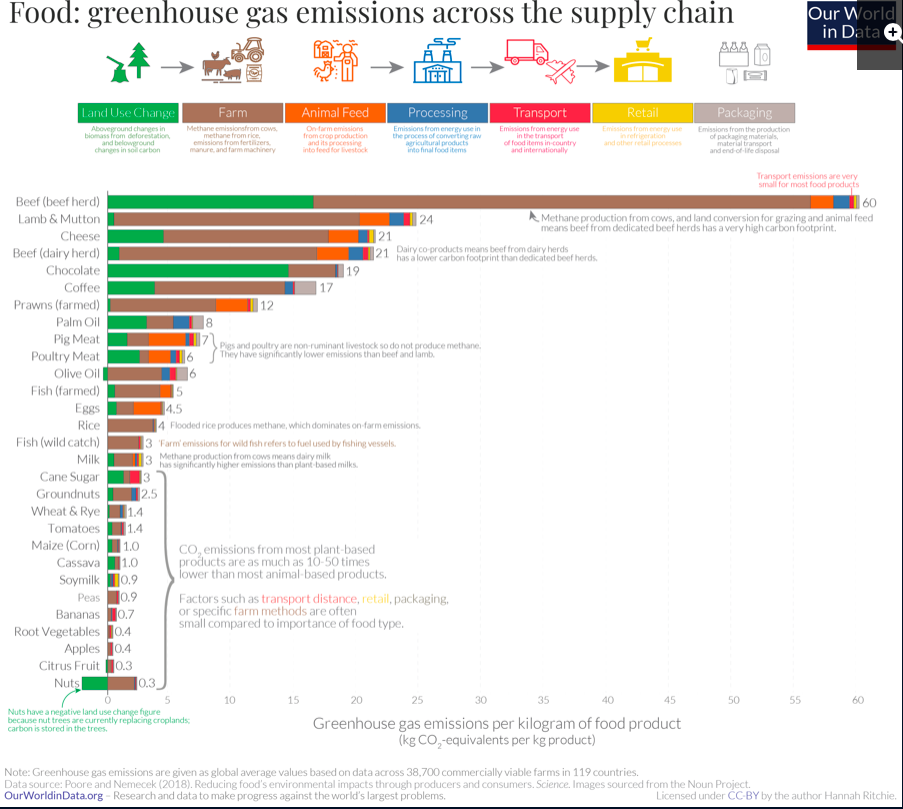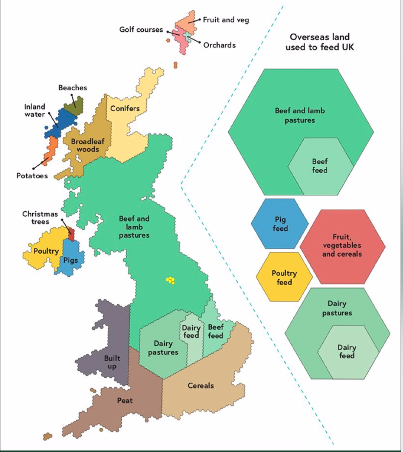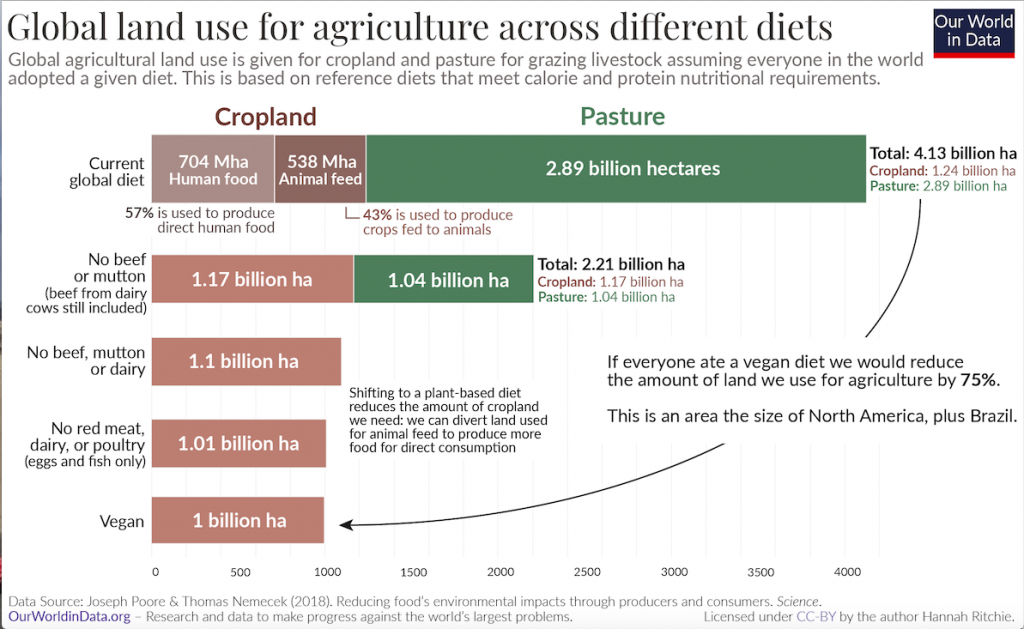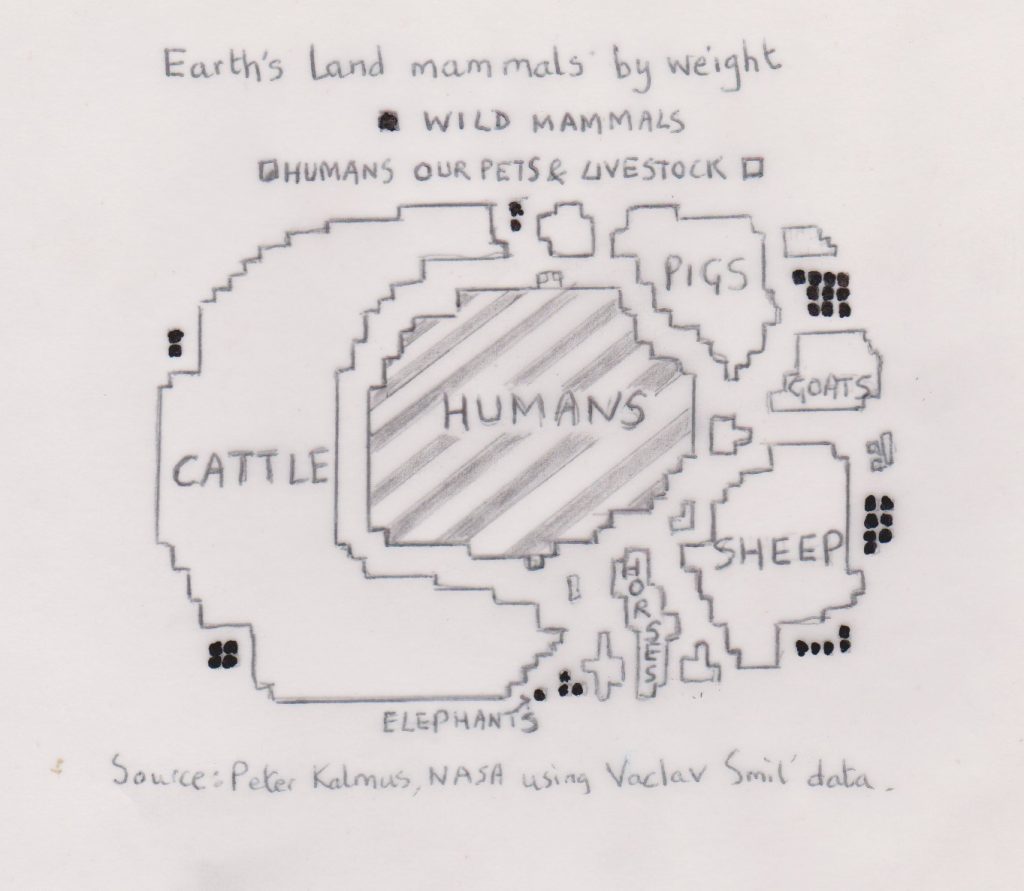Travelling light
For individuals in the UK, transport can be the largest part of their carbon footprint. Unsurprisingly, walking or cycling are usually the most efficient ways to travel – cycling 1km can burn as little as 16g of CO2-equivalent, though it depends what you are fuelled by and can be up to 50g – greater than the footprint of a kilometre by train – if you’ve eaten beef. Taking the train is usually the most efficient option after that.
As the chart below helps illustrate, the new fashion for large cars runs counter to the nation’s commitment to reaching net zero, as large cars emit nearly twice the emissions of smaller ones (and discourage active travel by posing more risk to vulnerable users).
It’s worth noting that the carbon footprints in the chart below are per person. So, sharing lifts to fill your car reduces everyone’s footprint. The footprint for driving electric cars is falling as the proportion of renewables in the grid is increasing; and if you have solar panels on your roof can become next to nothing (though as with all cars there is a footprint to their manufacture).
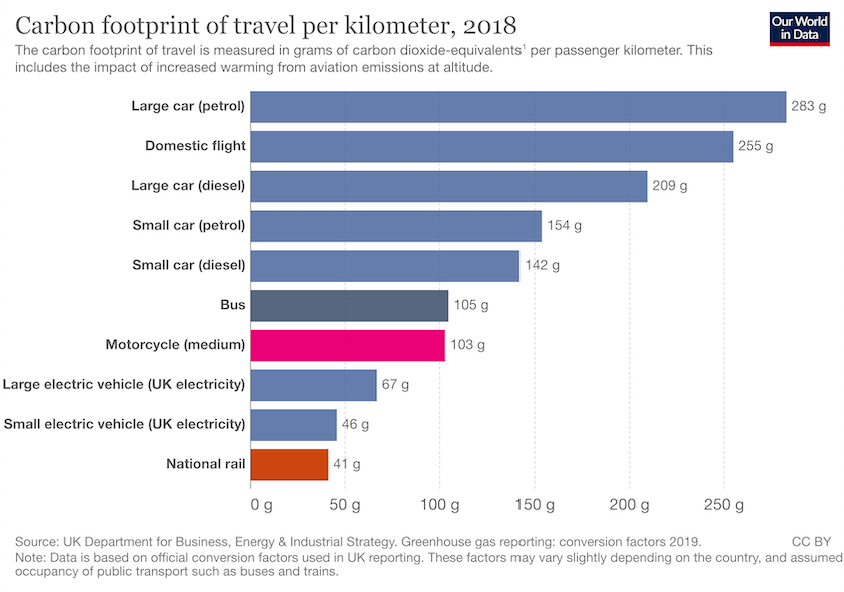
Of course, reducing your mileage and frequency of journeys is the easiest way to cut the carbon footprint of your travel; conversely, the further you travel the more important it becomes to use a low carbon mode, as we’ll explore another time.
Do I count? Yes! Supply and demand! We have no time to lose to stay in a safe climate and new roads tend to be supplied at great environmental cost, and train and bus services reduced, in response to use or the lack of it. Here’s a good opportunity to ditch the car a bit: From 1 January 2023, over 130 bus operators across the country will introduce a £2 fare cap on single tickets. The cap will remain in place until 31 March 2023. The scheme is part of an initiative funded by the Government aimed at boosting bus use while helping passengers to save money as the cost of living crisis continues to bite, fuelled in part by high petrol and diesel prices. To read more about the Government scheme search for Help for Households Help with Transport Costs: https://helpforhouseholds.campaign.gov.uk/help-with-transport-costs/
Here’s One New Thing To Do for our Future
Walk, scoot or cycle for journeys less than 3 miles if you can, or take the bus if you can’t.
